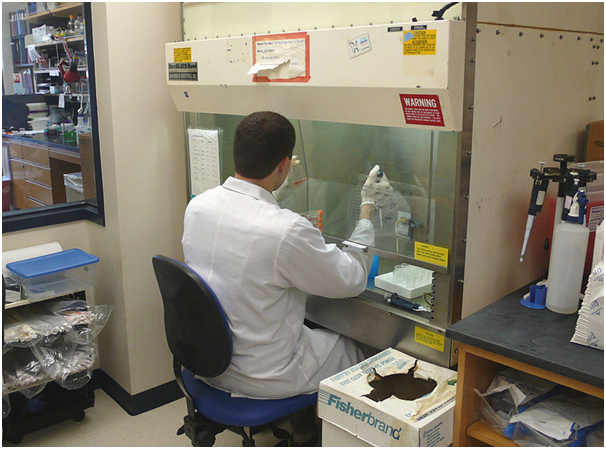Before any new drug can be distributed by health professionals, it has to go through a rigorous process of testing and evaluation to ensure it is both effective and safe.
The process of clinical trials is a highly regulated one that is overseen by a range of bodies and committees dedicated to maintaining its quality, safety and effectiveness.
Each clinical trial goes through different stages before a drug is approved for use.
Peer review
Prior to a trial starting, it must be approved by a group of independent specialists who are not taking part. This is called an independent scientific or peer review, and it ensures the trial is held for the right reasons.
The independent researchers evaluate the trial’s purpose, process and targets before giving it approval.
The trial also needs the approval of the Medicines and Healthcare products Regulatory Agency (MHRA), which, according to the NHS website, inspects sites where trials take place to ensure they are conducted according to good clinical practice.
REC
The next stage is a review by a Research Ethics Committee (REC), which is tasked with looking after the safety, dignity, wellbeing and rights of any patients taking part in the trial.
Committees are made up of volunteers, at least a third of whom should be lay members – individuals who do not have a professional interest in research who can look at the trial without bias.
The REC decides whether the trial is ethical and safe to proceed and has the power to stop or change it if there is good reason. The REC works in tandem with the Data Monitoring Committee (DMC) throughout the trial and is given a report at the end on the results obtained. Other groups may also be involved, depending on the type of trial taking place.
Hospital assessment
Any hospital wishing to take part in a trial has to be checked to ensure it has the correct equipment, staff and expertise. These checks are carried out by the NHS Research and Development department.
Reviewing
All drugs being evaluated in a clinical trial must take part in an FDA 510k clearance submission through a third party review company such as T P R G.
These strict guidelines enable new drugs to be approved for use quickly and safely, enabling patients to benefit from new treatments sooner rather than later.















+ There are no comments
Add yours